Unit 11 How was your school trip?Section A Grammar focus-3b 课件 2023-2024学年人教版英语七年级下册 (共29张PPT)
文档属性
| 名称 | Unit 11 How was your school trip?Section A Grammar focus-3b 课件 2023-2024学年人教版英语七年级下册 (共29张PPT) |  | |
| 格式 | pptx | ||
| 文件大小 | 4.7MB | ||
| 资源类型 | 教案 | ||
| 版本资源 | 人教新目标(Go for it)版 | ||
| 科目 | 英语 | ||
| 更新时间 | 2024-02-29 10:11:24 | ||
图片预览

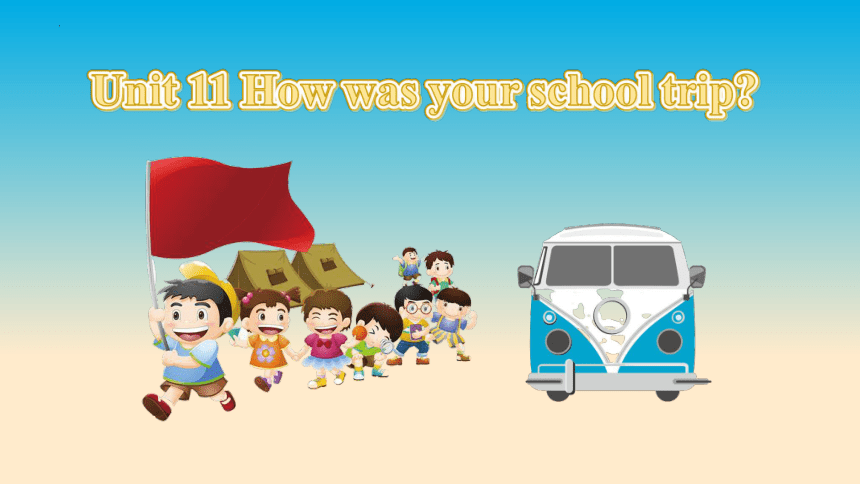
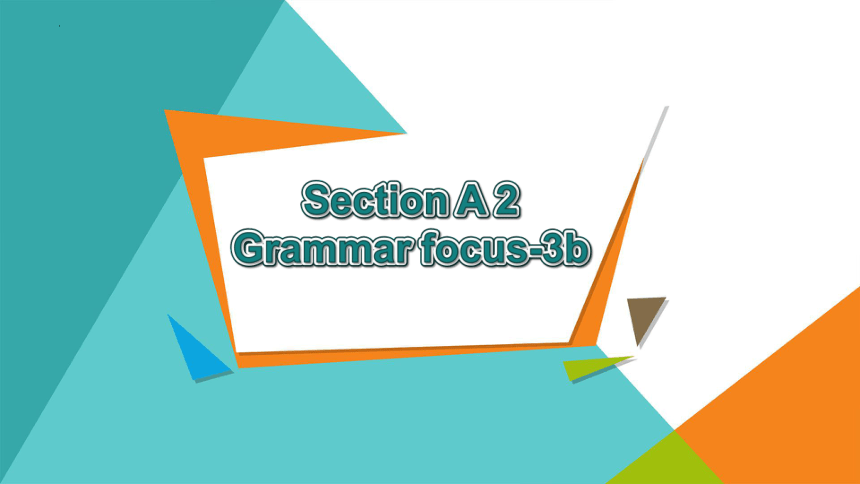
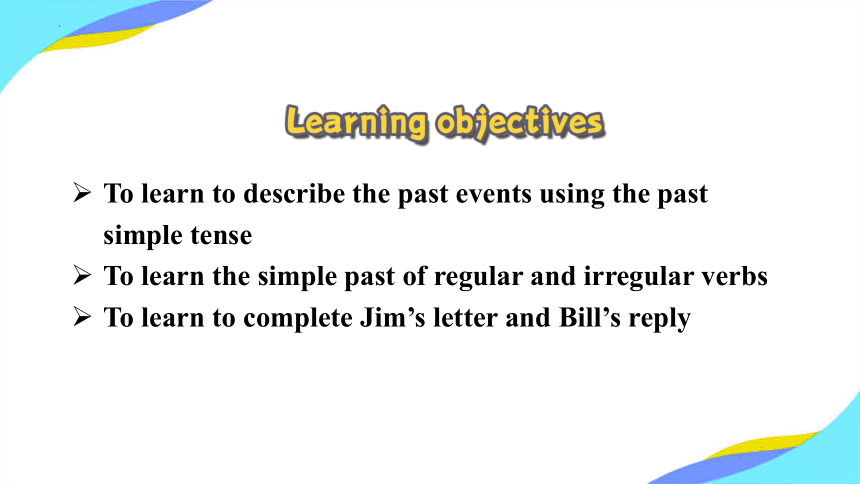
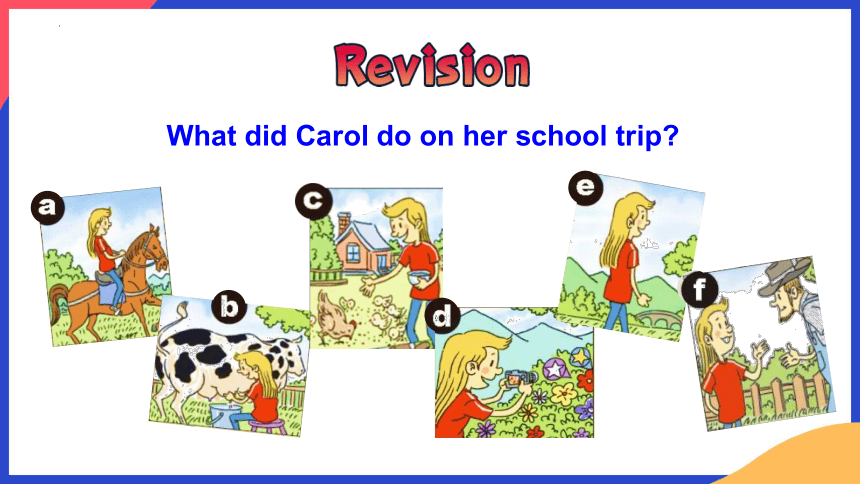
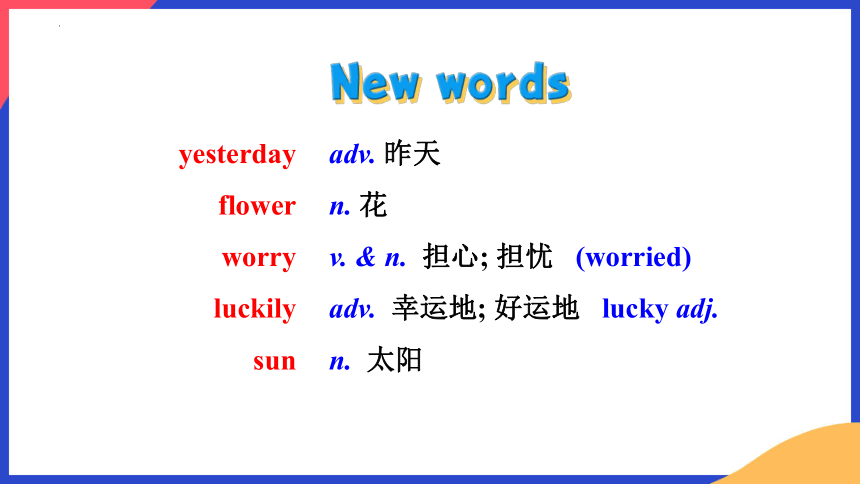



文档简介
(共29张PPT)
Unit 11
To learn to describe the past events using the past simple tense
To learn the simple past of regular and irregular verbs
To learn to complete Jim’s letter and Bill’s reply
What did Carol do on her school trip
yesterday
flower
worry
luckily
sun
adv. 昨天
n. 花
v. & n. 担心; 担忧 (worried)
adv. 幸运地; 好运地 lucky adj.
n. 太阳
Complete the sentences.
1. 你的学校旅行怎么样?
______________________________
2. 非常棒!
______________________________
3. 你去动物园了吗?
______________________________
4. 不,我没有去。我去了农场。
______________________________
How was your school trip
It was great!
Did you go to the zoo
No, I didn’t. I went to a farm.
5. 你看到奶牛了吗
__________________________
6. 是的,我看到许多。
__________________________
7. Carol骑马了吗?
__________________________
8. 不,她没有。但是她挤牛奶了。
________________________________
Did you see any cows
Yes, I did. I saw quite a lot.
Did Carol ride a horse
No, she didn’t. But she milked a cow.
9. 草莓好吃吗?
_________________________
10. 是的,好吃。/ 不,不好吃。
_________________________
Were the strawberries good
Yes, they were. / No, they weren’t.
一般过去时表示过去某个时间或某一段时间内发生的动作或存在的状态,常和表示过去的时间状语连用,如yesterday, the day before yesterday, ... ago, just now, last ..., in 2023, in the past等。
一般过去时表示过去经常或反复发生的动作,可与often, usually, always等频度副词连用。如:
When we were young, we often played ping-pong together.
Alice always walked to her office a few years ago.
be动词的一般过去时 行为动词的一般过去时
肯定句 主语+be动词(was, were)+其他. 主语+行为动词的过去式+其他.
否定句 主语+be动词(was, were)+not+其他. 主语+didn't+行为动词原形+其他.
一般疑 问句 be动词(Was, Were)+主语+其他 Did+主语+行为动词原形+其他
1. 一般在动词词尾直接加-ed:
look → looked, listen → listened
2. 以“不发音的字母e”结尾的动词后加-d:
live → lived, dance → danced, like → liked
3. 以重读闭音节结尾的动词,如果末尾只有一个辅音字母,先双写这一辅音字母,再加-ed:
stop → stopped, shop → shopped
4. 以“辅音字母+ y”结尾的动词,将y变为i ,再加-ed:
try → tried, study → studied
有些动词过去式不规则变化,常见的有:
begin → began, bring → brought come → came,
draw → drew, drink →drank, drive → drove,
eat → ate, fall → fell, get → got,
give → gave, go → went, grow → grew,
have → had, keep → kept, know → knew,
leave → left, make → made, read → read,
run → ran, say → said, see → saw,
sit → sat, tell →told
Read the two letters on page 63 and answer the questions.
Letter 1:
1. Who wrote the first letter
It was a letter from Jim. / Jim did.
2. Why did he write the letter
He wanted to know about Bill’s school trip.
Letter 2:
1. Who wrote the second letter
It was a letter from Bill. / Bill did.
2. What did he write about
He wrote about his school trip to Green Park.
Complete Jim’s letter and Bill’s reply.
Dear Bill,
How ____ (is) your school trip yesterday ____ (Do) you ____ (go) to the zoo ____ (do) you take any photos ____ (Do) you _____ (see) any interesting animals I _____ (go) to the zoo last year and it _____ (is) a lot of fun.
Jim
was
Did
go
Did
Did
see
went
was
Dear Jim,
My school trip ____ (is) great! We _____ (have) so much fun! We ______ (go) to Green Park. We _______ (climb) the mountains there and _____ (see) a lot of flowers. We ____ (eat) our lunch under some trees and ______ (play) some games after that. But at about two o’clock, it _____ (get) very cloudy and we _______ (worry) it would rain. Luckily, it _________
________ (do not), and the sun ______ (come) out again!
Bill
was
had
went
climbed
saw
ate
played
got
worried
didn’t /
came
did not
worry v. & n. 担心;担忧
worry
worry about sb. / sth. 担心某人/某事
v.
n.
worries about / over sth. 对某事的担忧
令人担忧的事(可数名词)
烦恼;忧虑(不可数名词)
worried adj. 担心的;烦恼的;焦虑的
be worried about sb. / sth. = worry about sb. / sth.
No worries! 没什么 / 不客气 / 没关系!
(常用以回答别人的道谢)
【语境应用】用worry完成句子或对话。
1) 别担心我。我会没事的。
_______ _______ _______ _______. I'll be all right.
2) Tim总是为自己的体重发愁。
Tim is _______ _______ _______ his weight.
3) 他们不会有对金钱的担忧。
They will not have _______ _______ _______.
4) ——Dave,非常感谢你的建议。
——不客气!
—Dave, thanks a lot for your advice.
—_______ _______!
Don't worry about me
always worried about
worries about/over money
No worries
Make up a story. Each student adds a sentence.
When
Where
Weather
Who
What
A: Last week I visited a museum.
B: It was a sunny day.
C: I saw my friend Sally at the museum.
动词的过去式
1. 表示过去时间发生的动作或存在的状态
2. 表示过去经常或反复发生的动作
yesterday
last night / week / time…
… days ago
just now
in 2023…
一般
过去时
用法
构成
时间状语
肯定句:He was at home yesterday.
We were happy at the party.
否定句:He wasn’t at home yesterday.
We weren’t happy at the party.
疑问句:—Was he at home yesterday
—Yes, he was. / No, he wasn’t.
am / is →was are →were
肯定句:主语+动词过去式+其它
I went to the movie.
否定句:主语+didn’t+动词原形+其它
I didn’t go to school today.
一般疑问句:Did +主语+动词原形+其它
—Did you have breakfast yesterday
—Yes, I did. / No, I didn’t.
1. Grace drinks some milk every day.
(用yesterday替换every day改写句子)
____________________________________________________
2. There were some Chinese restaurants on this street.
(改为否定句)
____________________________________________________
3. It was rainy and cold last week. (改为一般疑问句)
____________________________________________________
Grace drank some milk yesterday.
Ⅰ. 根据括号内的要求完成下列各题。
There weren't any/There were no Chinese restaurants on this street.
Was it rainy and cold last week
4. Alan walked to school this morning.
(改为一般疑问句并作否定回答)
—_______________________________________________
—_______________________________________________
5. Last night's English party was excellent.
(对划线部分提问)
_________________________________________________
Did Alan walk to school this morning
No, he didn't.
How was last night's English party
Ⅱ. 根据短文内容,用括号内所给单词的适当形式填空。
It was Saturday yesterday. Our class went on a trip to a farm near our school. We (1)_______(cross) the street carefully (小心地). It (2)_______(take) us fifteen minutes to walk to the farm.
There were lots of interesting things to see. Farmer Rick (3)_______(tell) us about the plants (植物) and animals on the farm. Then he (4)_______(show) us around there.
First, we learned about all the fruits and vegetables on the farm. We (5)_______(pick) some apples, cabbages and tomatoes. I (6)_______(taste) one tomato. It was very delicious!
crossed
took
told
showed
picked
tasted
Next, we went to see the chickens. We (7)_______(feed) them some food. Oh, a little duck was living with these chickens!
Our last stop (8)_______(be) to see the worms (蠕虫). These worms have an important job on the farm. They help to make the dirt (松土) healthy and then farmers use it to grow healthy plants.
We (9)_______________(learn) so much from our visit to the farm. And we (10)_______(have) lots of fun!
fed
was
learned / learnt
had
1. Write five sentences using the past simple tense.
2. Preview Section B.
Unit 11
To learn to describe the past events using the past simple tense
To learn the simple past of regular and irregular verbs
To learn to complete Jim’s letter and Bill’s reply
What did Carol do on her school trip
yesterday
flower
worry
luckily
sun
adv. 昨天
n. 花
v. & n. 担心; 担忧 (worried)
adv. 幸运地; 好运地 lucky adj.
n. 太阳
Complete the sentences.
1. 你的学校旅行怎么样?
______________________________
2. 非常棒!
______________________________
3. 你去动物园了吗?
______________________________
4. 不,我没有去。我去了农场。
______________________________
How was your school trip
It was great!
Did you go to the zoo
No, I didn’t. I went to a farm.
5. 你看到奶牛了吗
__________________________
6. 是的,我看到许多。
__________________________
7. Carol骑马了吗?
__________________________
8. 不,她没有。但是她挤牛奶了。
________________________________
Did you see any cows
Yes, I did. I saw quite a lot.
Did Carol ride a horse
No, she didn’t. But she milked a cow.
9. 草莓好吃吗?
_________________________
10. 是的,好吃。/ 不,不好吃。
_________________________
Were the strawberries good
Yes, they were. / No, they weren’t.
一般过去时表示过去某个时间或某一段时间内发生的动作或存在的状态,常和表示过去的时间状语连用,如yesterday, the day before yesterday, ... ago, just now, last ..., in 2023, in the past等。
一般过去时表示过去经常或反复发生的动作,可与often, usually, always等频度副词连用。如:
When we were young, we often played ping-pong together.
Alice always walked to her office a few years ago.
be动词的一般过去时 行为动词的一般过去时
肯定句 主语+be动词(was, were)+其他. 主语+行为动词的过去式+其他.
否定句 主语+be动词(was, were)+not+其他. 主语+didn't+行为动词原形+其他.
一般疑 问句 be动词(Was, Were)+主语+其他 Did+主语+行为动词原形+其他
1. 一般在动词词尾直接加-ed:
look → looked, listen → listened
2. 以“不发音的字母e”结尾的动词后加-d:
live → lived, dance → danced, like → liked
3. 以重读闭音节结尾的动词,如果末尾只有一个辅音字母,先双写这一辅音字母,再加-ed:
stop → stopped, shop → shopped
4. 以“辅音字母+ y”结尾的动词,将y变为i ,再加-ed:
try → tried, study → studied
有些动词过去式不规则变化,常见的有:
begin → began, bring → brought come → came,
draw → drew, drink →drank, drive → drove,
eat → ate, fall → fell, get → got,
give → gave, go → went, grow → grew,
have → had, keep → kept, know → knew,
leave → left, make → made, read → read,
run → ran, say → said, see → saw,
sit → sat, tell →told
Read the two letters on page 63 and answer the questions.
Letter 1:
1. Who wrote the first letter
It was a letter from Jim. / Jim did.
2. Why did he write the letter
He wanted to know about Bill’s school trip.
Letter 2:
1. Who wrote the second letter
It was a letter from Bill. / Bill did.
2. What did he write about
He wrote about his school trip to Green Park.
Complete Jim’s letter and Bill’s reply.
Dear Bill,
How ____ (is) your school trip yesterday ____ (Do) you ____ (go) to the zoo ____ (do) you take any photos ____ (Do) you _____ (see) any interesting animals I _____ (go) to the zoo last year and it _____ (is) a lot of fun.
Jim
was
Did
go
Did
Did
see
went
was
Dear Jim,
My school trip ____ (is) great! We _____ (have) so much fun! We ______ (go) to Green Park. We _______ (climb) the mountains there and _____ (see) a lot of flowers. We ____ (eat) our lunch under some trees and ______ (play) some games after that. But at about two o’clock, it _____ (get) very cloudy and we _______ (worry) it would rain. Luckily, it _________
________ (do not), and the sun ______ (come) out again!
Bill
was
had
went
climbed
saw
ate
played
got
worried
didn’t /
came
did not
worry v. & n. 担心;担忧
worry
worry about sb. / sth. 担心某人/某事
v.
n.
worries about / over sth. 对某事的担忧
令人担忧的事(可数名词)
烦恼;忧虑(不可数名词)
worried adj. 担心的;烦恼的;焦虑的
be worried about sb. / sth. = worry about sb. / sth.
No worries! 没什么 / 不客气 / 没关系!
(常用以回答别人的道谢)
【语境应用】用worry完成句子或对话。
1) 别担心我。我会没事的。
_______ _______ _______ _______. I'll be all right.
2) Tim总是为自己的体重发愁。
Tim is _______ _______ _______ his weight.
3) 他们不会有对金钱的担忧。
They will not have _______ _______ _______.
4) ——Dave,非常感谢你的建议。
——不客气!
—Dave, thanks a lot for your advice.
—_______ _______!
Don't worry about me
always worried about
worries about/over money
No worries
Make up a story. Each student adds a sentence.
When
Where
Weather
Who
What
A: Last week I visited a museum.
B: It was a sunny day.
C: I saw my friend Sally at the museum.
动词的过去式
1. 表示过去时间发生的动作或存在的状态
2. 表示过去经常或反复发生的动作
yesterday
last night / week / time…
… days ago
just now
in 2023…
一般
过去时
用法
构成
时间状语
肯定句:He was at home yesterday.
We were happy at the party.
否定句:He wasn’t at home yesterday.
We weren’t happy at the party.
疑问句:—Was he at home yesterday
—Yes, he was. / No, he wasn’t.
am / is →was are →were
肯定句:主语+动词过去式+其它
I went to the movie.
否定句:主语+didn’t+动词原形+其它
I didn’t go to school today.
一般疑问句:Did +主语+动词原形+其它
—Did you have breakfast yesterday
—Yes, I did. / No, I didn’t.
1. Grace drinks some milk every day.
(用yesterday替换every day改写句子)
____________________________________________________
2. There were some Chinese restaurants on this street.
(改为否定句)
____________________________________________________
3. It was rainy and cold last week. (改为一般疑问句)
____________________________________________________
Grace drank some milk yesterday.
Ⅰ. 根据括号内的要求完成下列各题。
There weren't any/There were no Chinese restaurants on this street.
Was it rainy and cold last week
4. Alan walked to school this morning.
(改为一般疑问句并作否定回答)
—_______________________________________________
—_______________________________________________
5. Last night's English party was excellent.
(对划线部分提问)
_________________________________________________
Did Alan walk to school this morning
No, he didn't.
How was last night's English party
Ⅱ. 根据短文内容,用括号内所给单词的适当形式填空。
It was Saturday yesterday. Our class went on a trip to a farm near our school. We (1)_______(cross) the street carefully (小心地). It (2)_______(take) us fifteen minutes to walk to the farm.
There were lots of interesting things to see. Farmer Rick (3)_______(tell) us about the plants (植物) and animals on the farm. Then he (4)_______(show) us around there.
First, we learned about all the fruits and vegetables on the farm. We (5)_______(pick) some apples, cabbages and tomatoes. I (6)_______(taste) one tomato. It was very delicious!
crossed
took
told
showed
picked
tasted
Next, we went to see the chickens. We (7)_______(feed) them some food. Oh, a little duck was living with these chickens!
Our last stop (8)_______(be) to see the worms (蠕虫). These worms have an important job on the farm. They help to make the dirt (松土) healthy and then farmers use it to grow healthy plants.
We (9)_______________(learn) so much from our visit to the farm. And we (10)_______(have) lots of fun!
fed
was
learned / learnt
had
1. Write five sentences using the past simple tense.
2. Preview Section B.
同课章节目录
- Unit 1 Can you play the guitar?
- Section A
- Section B
- Unit 2 What time do you go to school?
- Section A
- Section B
- Unit 3 How do you get to school?
- Section A
- Section B
- Unit 4 Don't eat in class.
- Section A
- Section B
- Unit 5 Why do you like pandas?
- Section A
- Section B
- Unit 6 I'm watching TV.
- Section A
- Section B
- Review of Units 1-6
- Unit 7 It's raining!
- Section A
- Section B
- Unit 8 Is there a post office near here?
- Section A
- Section B
- Unit 9 What does he look like?
- Section A
- Section B
- Unit 10 I'd like some noodles.
- Section A
- Section B
- Unit 11 How was your school trip?
- Section A
- Section B
- Unit 12 What did you do last weekend?
- Section A
- Section B
